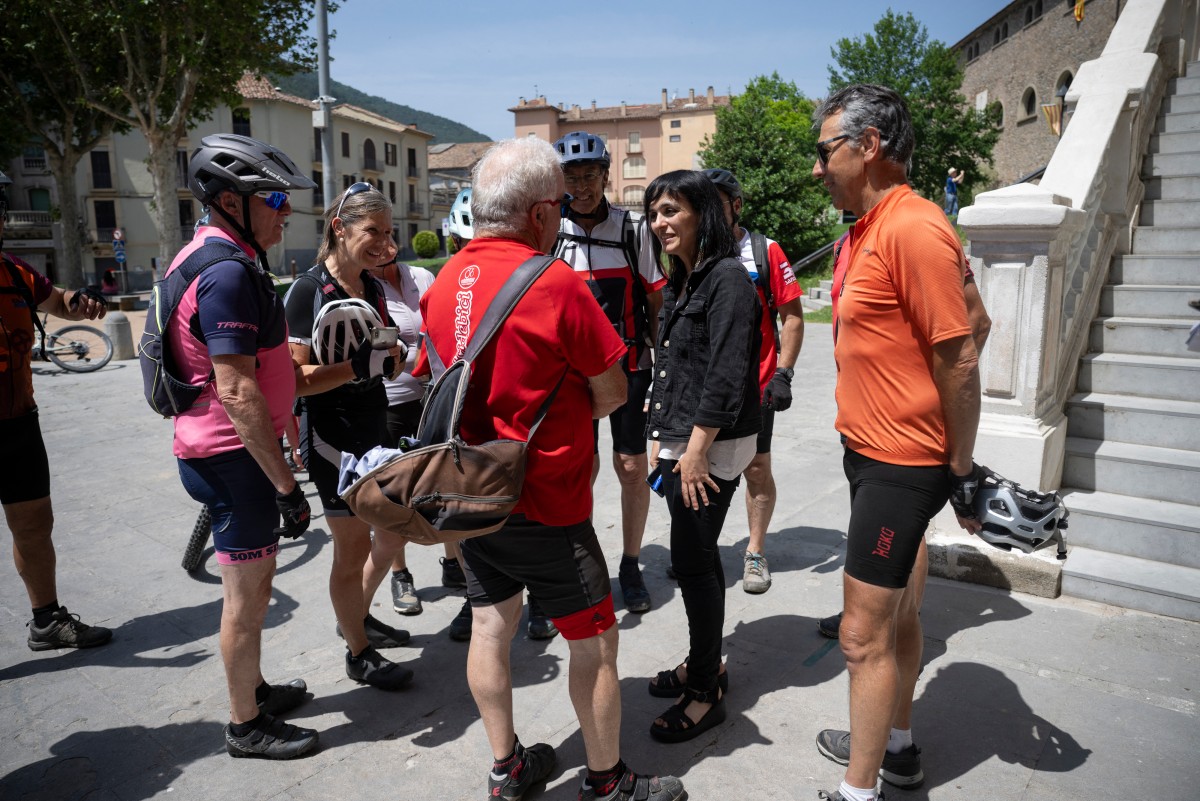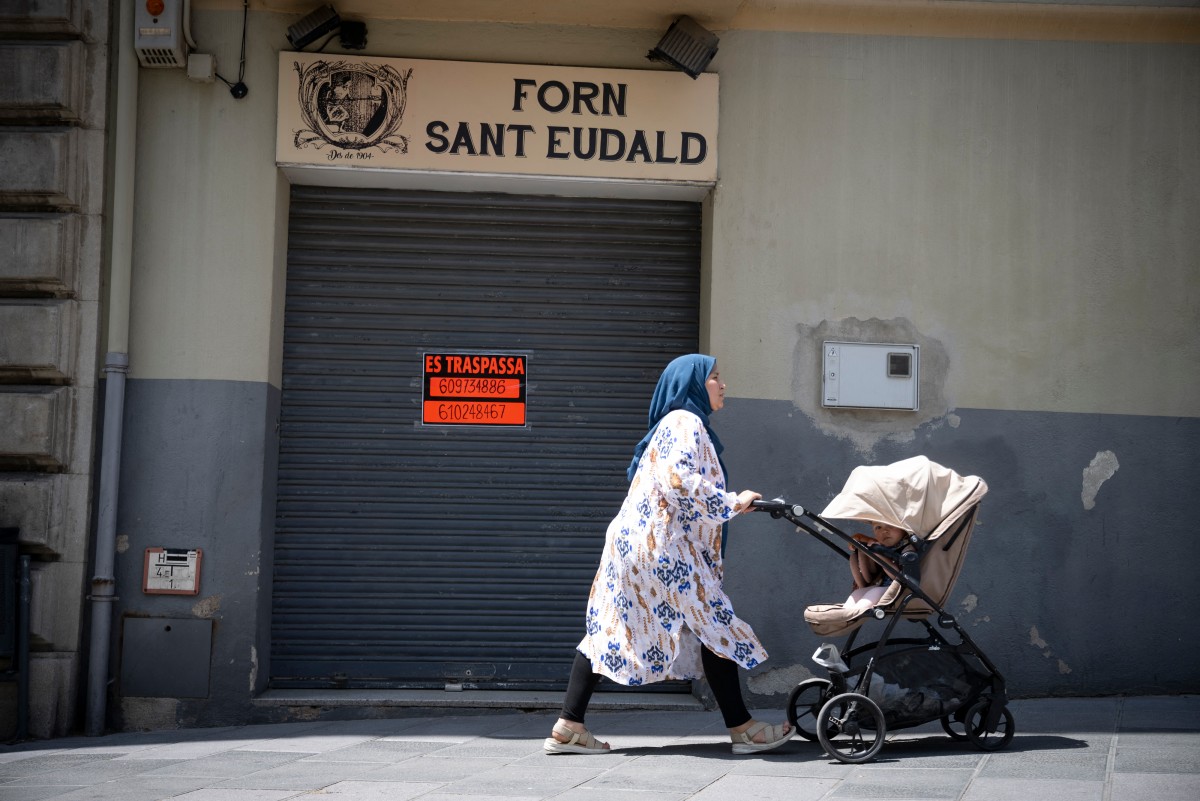'People are scared': Catalan anti-Islam party polarises Spanish town

"I am Islamophobic in the sense that the progress Islam is making on our continent scares me, and I'm here to try to stop it," says Silvia Orriols, the mayor of a Catalan town whose ultra-nationalist, anti-Islam separatist party is on the rise.
In a modest town in Ripoll, a group of cyclists excitedly gathered for photos with Silvia Orriols, mayor of this municipality north of Barcelona.
"Silvia, we're with you!" one supporter exclaimed alongside Orriols, who posed smiling under the midday sun next to the town hall.
Once unknown outside the town, Orriols burst onto the scene in 2023 when her recently founded Aliança Catalana (Catalan Alliance) party won the mayoralty following municipal elections.
A year later, Aliança Catalana's populist and anti-immigration message saw it enter the regional parliament with two seats, riding a wave of far-right gains across Europe and beyond.
"We are not far right, or of the left, or of the right. We are Catalan nationalists," the former administrative employee, 40, told AFP from her office in Ripoll town hall.
The small municipality of 10,700 souls grabbed international attention in 2017 because it was there that jihadist attackers who killed 16 people in Barcelona and nearby Cambrils, mostly youngsters of Moroccan origin, grew up.
"I am Islamophobic in the sense that the progress Islam is making on our continent scares me, and I'm here to try to stop it," added Orriols.
Had it not been for the 2017 attacks, the mother of five children with medieval Catalan names admitted she would not have entered politics.
Her message has caught on among part of the electorate of the wealthy northeastern region experiencing a demographic boom, with foreigners making up 18 percent of its population.
"We Catalans are first: those who have been here all our lives, our fathers and grandfathers," said Montse, a 59-year-old nurse who had just grabbed a photo with Orriols.
"If an immigrant comes and can integrate, great. But I think this mass we're receiving is terrible," added Montse, who declined to give her surname.

'People are scared'
Orriols has ignited controversies since taking control of Ripoll. Opponents say she has made it harder for foreigners to be added to the municipal register, denying them essential services.
She is also accused of banning a poster that advertised a local festival because it featured a drawing of a woman wearing an Islamic headscarf.
"Coexistence has been broken, people are scared," said Carme Brugarola, a 62-year-old inter-cultural activist and teacher who was fined for putting up the banned poster.
A few weeks ago, the town hall shut down a Moroccan café for infractions that it said included not allowing women to enter.
"It's a lie," responded an irritated Mohamed Srhiri, a Moroccan cook who has lived for almost 10 years in Ripoll, which hosts around 800 citizens from Spain's north African neighbour.
"We should not pay the price for what happened," added Srhiri, 50, referring to the 2017 attacks.
Wounds have not completely healed in the town, "another reason why Aliança Catalana is where it is", Brugarola said.
READ ALSO: Vox calls for mass deportations and Spanish citizenship audit for foreigners
Growing minority
The other shockwave that hit Catalonia in 2017 was the separatist crisis that culminated in a banned secession referendum, a short-lived declaration of independence and the imposition of direct rule from Madrid -- Spain's worst political crisis in decades.
An extreme fringe of the Catalan independence movement now sees an exciting project in Aliança Catalana after more established right-wing and leftist separatist parties failed to secede.
For Steven Forti, a professor of contemporary history at the Autonomous University of Barcelona, Aliança Catalana's radical pro-independence offering "has managed to unite a certain electorate, still in the minority but which can grow".

The party "fiercely attacks the other pro-independence parties, considering them traitors and frauds," he explained.
Polls suggest Aliança Catalana could win 10 seats in the next regional elections, attracting voters mainly from the conservative Junts party of Carles Puigdemont, who led the failed 2017 independence bid.
Although that leaves it far from power, Forti believes it is "impossible to say" what the limits were to the party's growth.
That prospect terrifies Soukayna, a 25-year-old who arrived in Ripoll as a girl and now chairs the town's Moroccan youth association.
"It is gaining ever more strength, it reaches more people, and what is most frightening is that it reaches the young," she told AFP from Barcelona in the local Catalan language, which she considers her own.
Concerned by the rising polarisation in Ripoll, Soukayna says she would like to speak with Orriols, who once lived in her neighbourhood, and "ask her about lots of things, where this hate comes from".
OPINION: Young black stars mirror migrants' contribution to Spain
Please, login for more
thelocal





